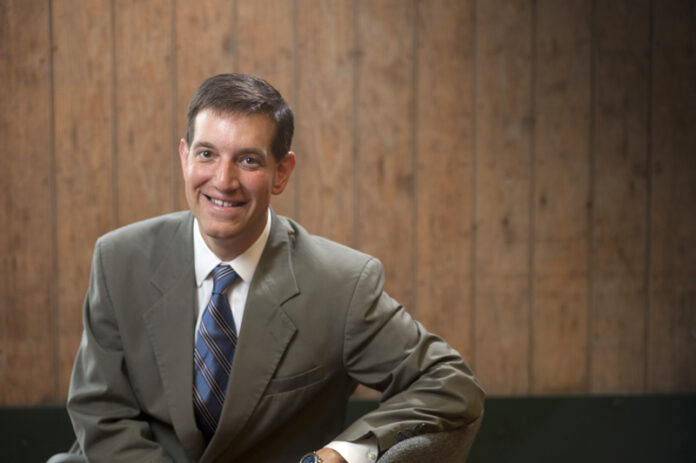
Approximately ten years ago, Chris R. Turnbull lived in Roanoke as an employee of John Lambert Associates, then moved to the Caribbean so his wife could attend veterinary school there. They lived there for several years, then Chris spent roughly seven years with the World Bank in Washington. All the same, he and his wife Carrie, yearned to return to Roanoke. The catalyst that finally caused the change came one evening this past January when a snow storm forced Turnbull to take eight hours to reach his home – 10 miles away from his job at the World Bank.
“I walked into the door and said, ‘this is it. We’re not doing this any more!’” Carrie, a native Roanoker, seconded her husband’s decision: “OK,” she said. “Let’s see what we can do.”
From there, Chris Turnbull began investigating job opportunities in Roanoke. His search brought him to Thomas Becher of The Becher Agency – also known as tba – in downtown Roanoke. “At the time, Thomas didn’t really have anything available,” Turnbull says. “But we kept talking and over the course of five or six months, sort of worked out this position.” The Turnbulls purchased a home in Roanoke—after which Carrie moved into in July, then her husband relocated here in August, commuting back and forth to Washington before beginning his present job at The Becher Agency just weeks ago.
“It was a long time coming, and it was a real thoughtful journey to decide if we wanted to come back,” said Chris. “But Roanoke didn’t really have to sell itself to us. We knew we wanted to be here.” Becher also said recently that Turnbull was a prime example of the type of young professional Roanoke wants to attract.
Turnbull characterizes his new position at The Becher Agency as “a strategic public relations advisory position for our clients. My background is in crisis communications [and] crisis management. That’s one element of what I offer to clients here.”
Turnbull defines crisis management as “not necessarily telling a client or an individual or organization how to respond to the crisis” but “rather giving them a framework so they can respond more effectively”—what he calls “putting some order to a very chaotic situation. There’s a framework that I would help them with, to define the perimeters of the crisis and work through it in a very thoughtful way so that they can address the issues and move on beyond it—and, in the end, hopefully become an even stronger organization.”
During his career, Turnbull has traveled to approximately 50 nations, confronting coup attempts, bombings, shootings, riots, and civil disturbances—all of which has helped refine his ability to communicate in critical situations. But, he adds, crisis communications can also extend to less earthshaking events: a competitor trying to move in, making a company stronger, accidents in plants and factories, something stated that injures another’s reputation or offends a group of people. “Crisis communications is not glossing over something that’s been done,” he explains, “it has to be a well-coordinated, thoughtful response from the company.”
In his brief time back in Roanoke, Turnbull has yet to deal with any major crises here—which, compared to his prior high-voltage experiences, is just fine with him. But he’s quick to add that the skills acquired in such events also apply to regular business, “in kind of a strategic look at how businesses do their work, and, really for me, as much as I like that adrenalin pump, I’m also really thrilled to be able to put my daughter to sleep every night and see my wife on a regular basis. That is one big, big reason why we came back.”

